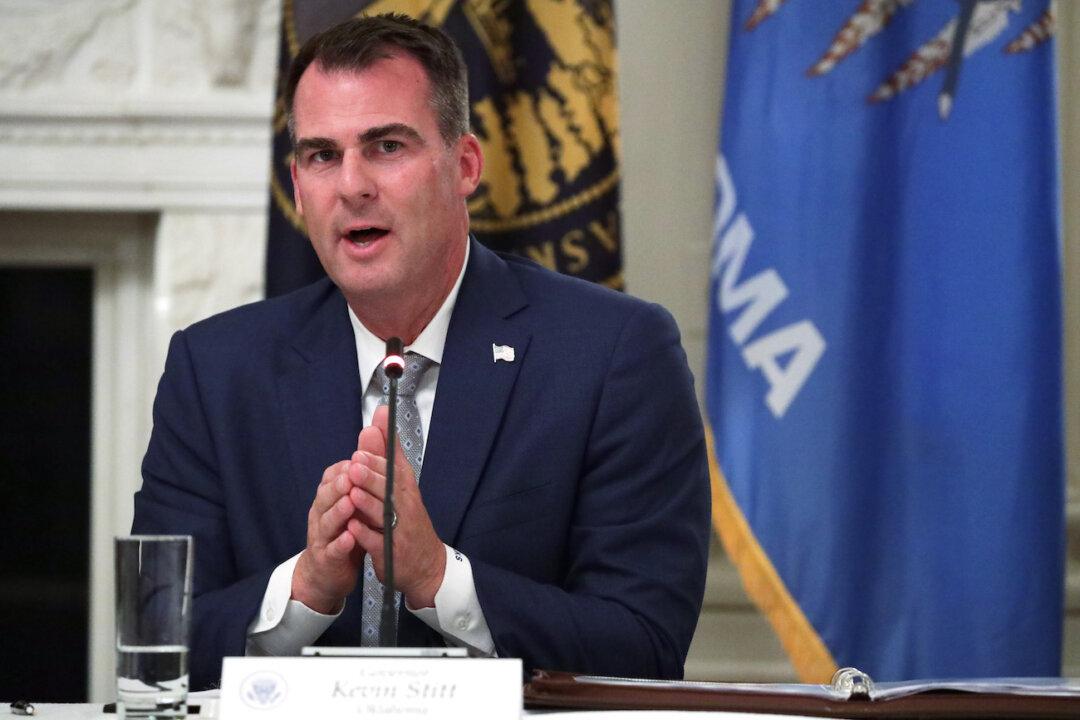Oklahoma Gov. Kevin Stitt on Tuesday signed into law a bill banning abortion after cardiac activity is detected, which is usually at six weeks of pregnancy.
The measure, S.B. 1503 or the “Oklahoma Heartbeat Act,” comes into effect immediately. Exceptions apply in cases of a medical emergency, but do not apply for pregnancies due to incest or rape.




